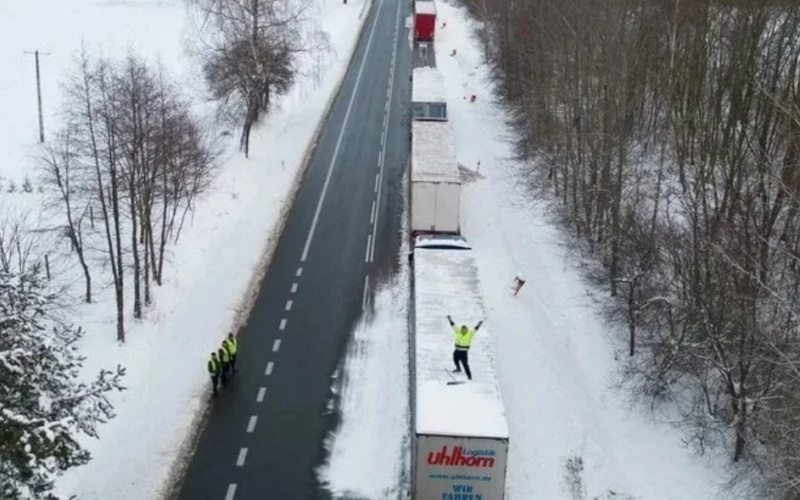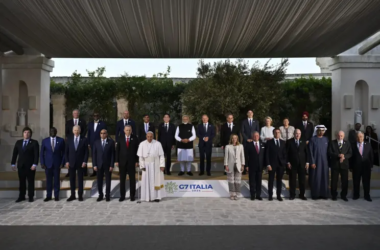In a significant development, Polish farmers have brought an end to their blockade of a key border crossing with Ukraine. The conclusion of the agricultural protests, which had led to disruptions and heightened tensions in the region, marks a crucial moment in the ongoing dialogue between farmers and the government, shedding light on the complexities of agricultural policies and their impact on local communities.
The protests, initiated by Polish farmers, were characterized by blockades at the Hrebenne-Medyka border crossing, a vital transportation link connecting Poland and Ukraine. The farmers, expressing their discontent with various aspects of agricultural policies, utilized these blockades as a means of drawing attention to their grievances and advocating for reforms.
The decision to lift the blockade comes after negotiations between representatives of the farming community and government officials. The resolution signifies a willingness on both sides to engage in constructive dialogue and find common ground to address the challenges faced by the agricultural sector in Poland.
At the heart of the farmers’ grievances are concerns about the economic viability of their agricultural enterprises. Issues such as rising production costs, fluctuating commodity prices, and the broader impact of European Union (EU) agricultural policies have fueled discontent among farmers, prompting them to seek meaningful reforms that ensure the sustainability of their livelihoods.
The blockade of the Ukraine border crossing served as a symbolic gesture of the farmers’ determination to have their voices heard and their concerns addressed. The disruption caused by the protests underscored the significance of agriculture in the region’s economy and its interconnectedness with international trade and relations.
The resolution of the blockade reflects the effectiveness of dialogue as a tool for conflict resolution. Both farmers and government officials demonstrated a commitment to finding solutions through negotiation, setting a precedent for future engagements on matters related to agricultural policies and rural development.
In the realm of responsible reporting, it is essential to provide context on the broader challenges faced by farmers in Poland and acknowledge the complexities of agricultural policies within the EU framework. While the conclusion of the blockade is a positive development, it also prompts a deeper examination of the systemic issues affecting the agricultural sector and the need for sustained efforts to address them.
As the protests come to an end, the focus now shifts to the implementation of potential reforms and policy adjustments that address the farmers’ concerns. The collaborative spirit demonstrated during the negotiations suggests a shared commitment to finding solutions that promote the long-term sustainability of agriculture in Poland.
In conclusion, the conclusion of the blockade at the Ukraine border crossing by Polish farmers marks a turning point in the ongoing dialogue between the agricultural community and the government. The resolution underscores the importance of open communication and negotiation in addressing the complexities of agricultural policies and ensuring the well-being of farmers. As the region moves forward, there is a collective hope that the lessons learned from this episode will contribute to more inclusive and effective policies that support the resilience and prosperity of the agricultural sector in Poland.








